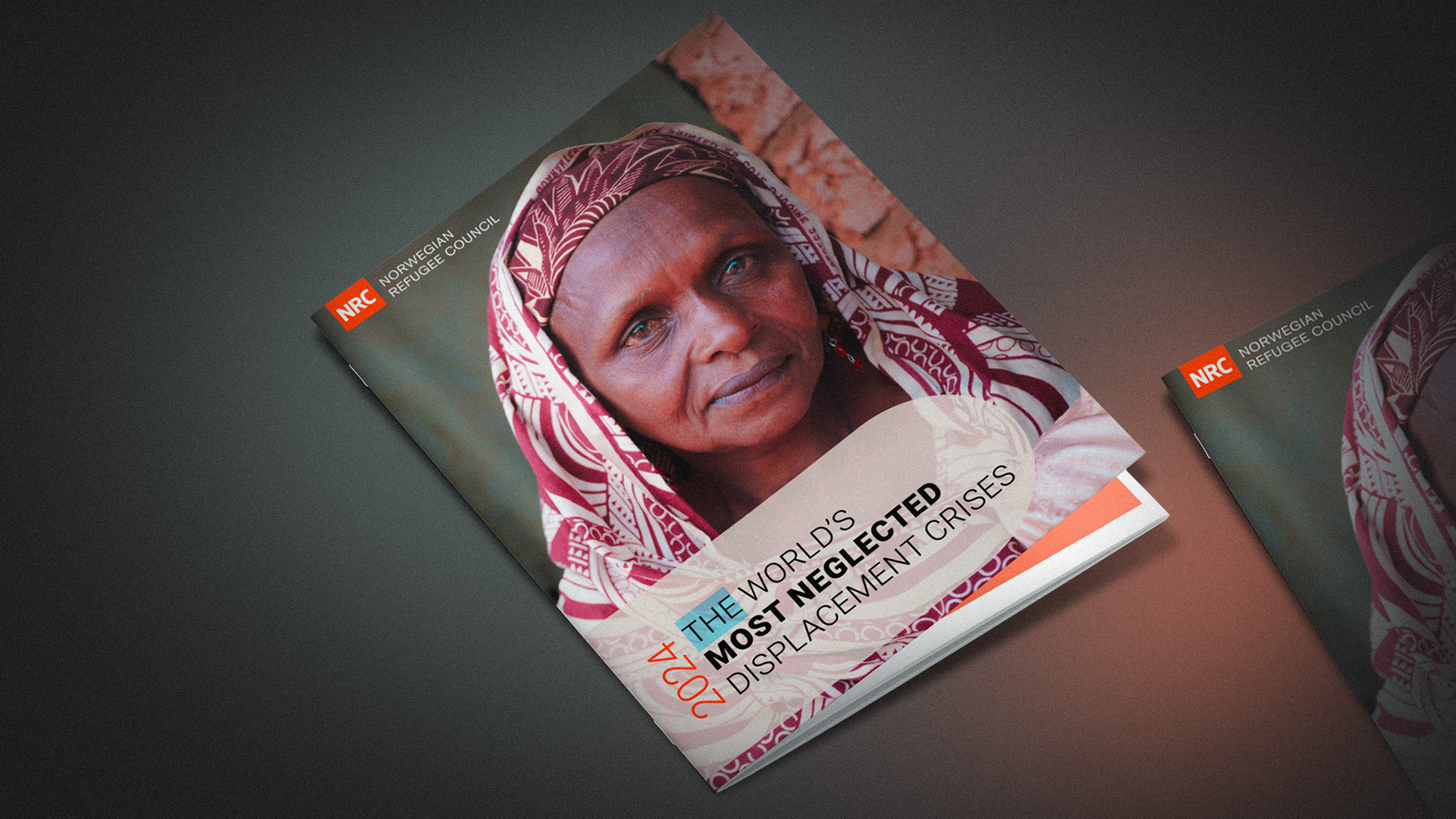NRC Warns: Response Systems 'No Longer Fit for Purpose' Amid Deepening Global Displacement Neglect
The NRC's 2024 report warns of rising global displacement amid plummeting aid and attention. Cameroon tops the list of most neglected crises, followed by Ethiopia and Mozambique. The NRC urges urgent global action to prevent millions from being forgotten in silence.

By Kamaran Aziz
ERBIL (Kurdistan24) – As global crises multiply and the world turns inward, millions of displaced people are slipping further into the shadows. The Norwegian Refugee Council (NRC), in its newly released annual report "The World's Most Neglected Displacement Crises in 2024," published on June 3, 2025, warns that displacement is no longer just a humanitarian issue—it is a barometer of global neglect.
In 2024, the number of displaced persons worldwide soared to double the figure of a decade ago. Yet, humanitarian funding has sharply declined, with only half of all needs met, NRC revealed. The most neglected crises received far less: in some cases, as little as 25 percent of requested aid. Media coverage remains negligible, and international political engagement minimal.
A Crisis of Neglect Across Continents
Topping this year’s list is Cameroon, a country grappling with multiple conflicts—armed violence in the Lake Chad Basin, separatist strife in the Northwest and Southwest, and instability from the Central African Republic. With over 3.4 million people in need and 1.1 million internally displaced, hunger and insecurity have worsened amid severely underfunded aid efforts.
Second is Ethiopia, where intercommunal clashes and post-war instability, coupled with climate disasters, have displaced over 2.3 million people. The country faces immense challenges, yet receives scant international attention or support.
Mozambique, ranked third, endured armed violence, political unrest, and Cyclone Chido, displacing nearly 600,000 people. The humanitarian response plan for 2024 was funded at just 41 percent, with food aid particularly inadequate.
Burkina Faso, ranked fourth, continues to face massive displacement and insecurity. Schools and health facilities are shuttered, and millions are at risk as humanitarian workers face escalating dangers.
Mali, in fifth place, is struggling with military operations, climate shocks, and incoming refugees from Burkina Faso. Humanitarian funding stood at only 39 percent, and local resources are critically stretched.
Host Nations Under Pressure
Uganda, now sixth, has absorbed nearly 1.8 million refugees. Despite its progressive policies, aid has dwindled to just $3 per person per month. With soaring malnutrition rates and overcrowded reception centers, the model is buckling under strain.
Iran, in seventh place, is home to six million Afghans, many without legal status. Recent deportations and restrictions on public services have worsened conditions, while the refugee response plan remains just 25 percent funded.
The Democratic Republic of the Congo ranks eighth, with over 6.2 million displaced and widespread sexual violence, disease outbreaks, and inadequate aid. Despite falling in the rankings, its crisis has only deepened.
Honduras, ninth on the list, suffers from violent crime, forced displacement, and climate disasters like Tropical Storm Sara. Only 31 percent of humanitarian needs were met in 2024.
Somalia, in tenth, faces ongoing drought, violence, and malnutrition. Over 3.5 million are displaced and 1.7 million children face acute hunger, a figure expected to rise with predicted La Niña conditions.
Call to Action
The NRC’s report doesn’t just document neglect—it indicts it. In nearly every case, crises that fall outside the geopolitical spotlight are left to fester. Funding gaps, inadequate political will, and media silence have become structural features of the international response system (As highlighted throughout the NRC publication).
The report calls on donor governments, UN agencies, and the media to recalibrate their priorities: to fund according to needs, not news cycles; to extend humanitarian diplomacy; and to invest in long-term, flexible solutions.
"If we choose to act, to invest, and to stand in solidarity, we can build a future where no one is left behind," the NRC concluded.
